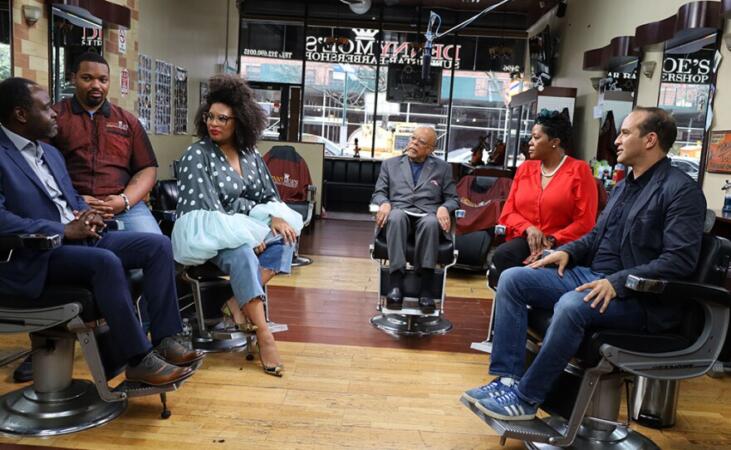One of the major components of white supremacy is entitlement. In addition to racism, white people have felt the need to inject themselves into the lives of people of color. Though they touted segregation, allowing Black people to exist beyond their gaze was something they could hardly bear. Yet, from the moment the first Black person landed on American shores, we’ve learned how to live and thrive beyond the view of the mainstream. The scholar W.E.B. DuBois called it “life behind the veil.” In his latest PBS docuseries, Making Black America: Through the Grapevine, Professor Henry Louis Gates, Jr., travels through the Black experience from the 18th century to the present, unpacking the people, places, and experiences that have helped form who we are as a community.
Helmed by directors Stacey L. Holman and Shayla Harris, the four-part series unpacks everything from establishing Black schools for formally enslaved post-Emancipation, the Harlem Renaissance, all-Black towns, and even Black Twitter. Countless experts and scholars, including Charles M. Blow, Angela Davis, André Holland, Fab 5 Freddie, Jason King, and Killer Mike, also lend their voices to the series.
Ahead of the Oct. 4 series premiere, Shadow and Act spoke with Holman and Harris about making the series, secrets revealed, and the history lessons that surprised them most.
“The African American story is often told through the lens of struggle, resistance, and overcoming racism, which is certainly a part of the story,” Harris explained. “But this ability to really showcase humanity, and community, and joy, and love, and all of these other aspects of African American life, was really, really exciting. So for me, it was a no-brainer to come back and dig into this series.”
Cycling back in time nearly 250 years took a great deal of work and research, and deciding what to keep in and what to take out of Making Black America involved some back and forth and some arm wrestling with the series’ editors. “I think a lot of what informs, what we put in the series, is what’s available visually,” Holman said. “I mean, it is a visual medium. We have an incredible archive team. So they did a really good job in the midst of all of that, of really providing suggestions to really help tell that story.”
As excited as Holman and Harris were about the series, there was some trepidation about revealing some of the intimacies of Black life.
“It’s like when your mother said, ‘We don’t talk about that in front of those people.’ You know what I mean? It was like that side-eye. We don’t tell our secrets,” Holman said. “I think there was a balance. How much is too much? Because this film is also, we’re making it for a wide audience. We’re letting Black people know here we are. This is what we were doing throughout history. This is how we were living, loving, having community, and this is how we survived. Then we’re also informing a wider audience. Yes, this narrative African American experience is bigger than what you are seeing, what you’re reading, what you’ve been told. But it was definitely kind of back and forth.”
Watch the full interview below.
Making Black America: Through the Grapevine will air on Tuesday, Oct. 4, 2022, at 9 PM EDT / 8 PM CDT. The series will run through Oct. 25.

